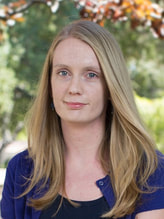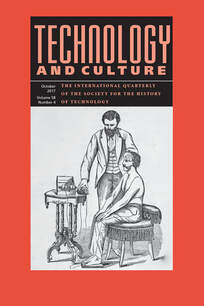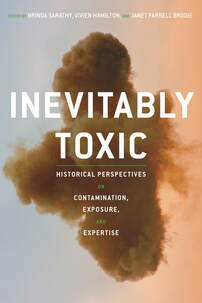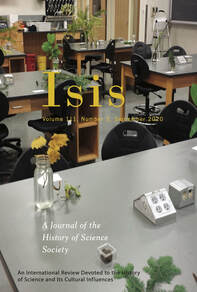
I am a historian of science, technology and medicine and associate professor in the Department of Humanities, Social Sciences and the Arts at Harvey Mudd College in Claremont, CA. I am also the current chair of the intercollegiate program in Science, Technology and Society at the Claremont Colleges and the Director of the Hixon-Riggs Forum for Responsive Science and Engineering at Harvey Mudd.
In my research, I ask questions about the creation of scientific knowledge as well as the production of ignorance. I want to understand why some claims about nature and the body are privileged over others, what happens when experts disagree, and what is lost when we discount or exclude certain kinds of knowledge.
I find medical technologies to be particularly fascinating focal points for these questions, and many of my projects examine instruments used in medicine, including electrotherapy devices, x-ray machines, and infant incubators. These technologies have required collaboration between individuals from multiple disciplinary cultures, highlighting different epistemic commitments and diverging values within science and medicine. They have often been dangerous, prompting questions about regulation and patient consent in the face of uncertain effects on bodies. They have also been potent symbols of science in medicine, mediating expectations about the nature of scientific knowledge and authority to wider audiences. Appearing to offer radically new insights and interventions, these devices have often strengthened existing harmful beliefs about race, gender and ability.
You can download my full CV here. I can be reached at [email protected].
In my research, I ask questions about the creation of scientific knowledge as well as the production of ignorance. I want to understand why some claims about nature and the body are privileged over others, what happens when experts disagree, and what is lost when we discount or exclude certain kinds of knowledge.
I find medical technologies to be particularly fascinating focal points for these questions, and many of my projects examine instruments used in medicine, including electrotherapy devices, x-ray machines, and infant incubators. These technologies have required collaboration between individuals from multiple disciplinary cultures, highlighting different epistemic commitments and diverging values within science and medicine. They have often been dangerous, prompting questions about regulation and patient consent in the face of uncertain effects on bodies. They have also been potent symbols of science in medicine, mediating expectations about the nature of scientific knowledge and authority to wider audiences. Appearing to offer radically new insights and interventions, these devices have often strengthened existing harmful beliefs about race, gender and ability.
You can download my full CV here. I can be reached at [email protected].
Inevitably Toxic: Historical Perspectives on Contamination, Exposure and ExpertiseInevitably Toxic (2018, University of Pittsburg Press), co-edited with Brinda Sarathy and Janet Farrell Brodie, asks us to confront the toxic landscapes that pervade modern life. The essays in the collection examine sites of nuclear detonation, neighborhoods impacted by oil drilling, and forests sprayed with pesticides, asking how these contaminated spaces have been created, whose health and wellbeing has been most impacted, and what role scientific experts have played in regulating radiation and chemical pollutants. If the proliferation of toxic spaces feels inevitable, driven by capitalist and imperialist ambitions, then unraveling these hidden histories can help us to understand and resist these dynamics, and ultimately, imagine a different future.
|
Other recent Publications
|
Vivien Hamilton and Daniel M. Stoebel (2020), “History in the Education of Scientists: Encouraging Judgement and Social Action,” Isis 11 (3), 623- 630. [PDF] |

Vivien Hamilton (2017), "Medical Machines as Symbols of Science?: Promoting Electrotherapy in Victorian Canada," Technology and Culture 58 (4): 1017 - 1045. |


